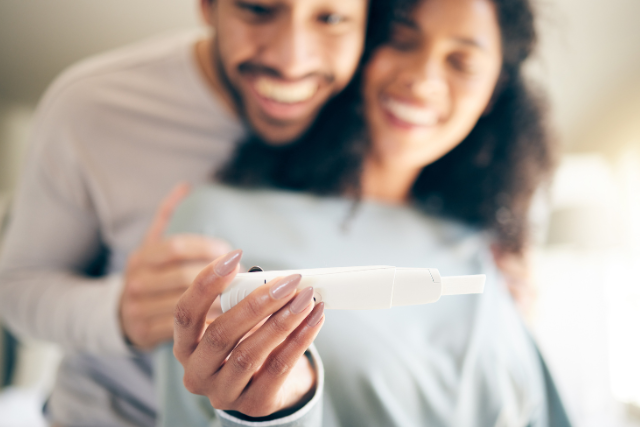Are you over 40 and want to get pregnant? You are not alone, but you are definitely in the minority. The CDC reports that in 2015, 11 births per 1000 were to women between the ages of 40 and 44 (up 4% from the previous year and the highest rate since 1966). The rate was .8 births per 1,000 to women aged 45 to 49. For women 50 and over, there were 754 births during the year, compared with 743 in 2014.
Importance of Seeing a Fertility Specialist
What the report doesn’t tell you is how many of these women used a fertility specialist to help them get pregnant. However, it was probably quite a few who sought assistance. Here’s why.
Fertility begins to drop off after age 35 along with egg quality. That’s why it is recommended that women in their 40s or older who want to become pregnant see a fertility specialist. This ensures they receive timely guidance and support. Eggs, unlike sperm, are not continually generated over a lifetime. Every baby girl is born with a set number of eggs, and when they are gone, no more will be produced. Also, older eggs are more likely to have abnormalities that may lead to birth defects.
Advanced Fertility Technologies
But if you are over 40 and want to have a baby, today’s advanced fertility technologies can give you your best chance. Here are some of the tests and treatments you might encounter:
Ovarian reserve testing lets your doctor know if you have a sufficient amount of eggs left to recommend ovulation stimulating medications. If your ovarian reserve is low, there is little chance of these medications working. Your ovarian reserve also gives your doctor an idea of how many fresh eggs might be harvested for an in-vitro fertilization (IVF) cycle.
During In-vitro fertilization (IVF), sperm and egg and are combined in a laboratory setting. One or more resulting healthy embryos are introduced into the woman’s uterus. Hopefully, one will implant into the lining of the uterus and grow into a healthy baby. For you to use your own eggs during IVF, you must have a high enough ovarian reserve, and the quality of the eggs must be sufficient to produce a healthy pregnancy. At age 30 about 30% of a woman’s eggs are chromosomally abnormal. By age 40 about 60% are abnormal and by 44 years old 90% are abnormal.
Options for Enhancing Fertility After 40
If you are in your mid 40s or older, your doctor may recommend using fresh or frozen donor eggs. This option is also suggested if your ovarian reserve or egg quality are low. Donor eggs offer older women an excellent opportunity to become pregnant and carry a healthy baby to term. Over 70 percent of women over age 45 who use assisted reproductive techniques such as IVF receive donor eggs. With today’s egg freezing technology, healthy frozen eggs donated by younger women are available. These eggs can help women in their 40s have that one-of-a-kind experience of becoming pregnant and giving birth to their very own child.
Recommendations for Women Over 40
So, if you are over 40 and want to become pregnant, here are some recommendations:
- See a fertility specialist sooner rather than later
- Be prepared to have your ovarian reserve tested
- Learn about IVF
- Consider donor eggs
- Consider donor embryo adoption
Explore essential fertility options for women aiming to get pregnant over 40, including the importance of seeing a specialist, IVF procedures, and the use of donor eggs. With the advanced fertility treatments available today, your dream of having a baby can become a reality. Discover how Bluprint Fertility can provide expert guidance and support on your journey to parenthood.


